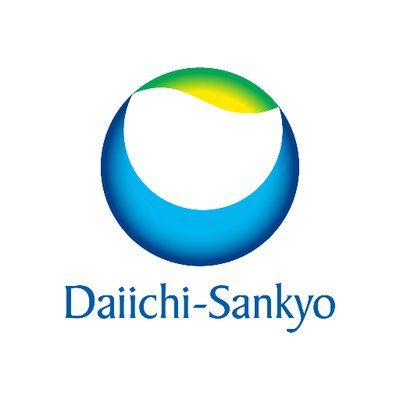预约演示
更新于:2026-03-03
Datopotamab Deruxtecan
德达博妥单抗
更新于:2026-03-03
概要
基本信息
药物类型 ADC |
别名 Dato-DXd、Datopotamab Deruxtecan-dlnk、达妥维妥单抗 + [9] |
作用方式 抑制剂 |
作用机制 TOP1抑制剂(DNA拓扑异构酶I抑制剂)、Trop-2抑制剂(肿瘤相关钙信号传感器2抑制剂) |
在研适应症 |
非在研适应症 |
非在研机构- |
最高研发阶段批准上市 |
首次获批日期 日本 (2024-12-27), |
最高研发阶段(中国)批准上市 |
特殊审评加速批准 (美国)、优先审评 (美国)、突破性疗法 (美国) |
登录后查看时间轴
结构/序列
使用我们的ADC技术数据为新药研发加速。
登录
或

Sequence Code 524309355L

来源: *****
Sequence Code 524309356H

来源: *****
外链
| KEGG | Wiki | ATC | Drug Bank |
|---|---|---|---|
| - | - | - |
研发状态
批准上市
10 条最早获批的记录, 后查看更多信息
登录
| 适应症 | 国家/地区 | 公司 | 日期 |
|---|---|---|---|
| EGFR阳性非小细胞肺癌 | 美国 | 2025-06-23 | |
| ER阳性/HER2阴性乳腺癌 | 澳大利亚 | 2025-05-20 | |
| 晚期非小细胞肺癌 | 加拿大 | 2025-03-01 | |
| HR阳性/HER2阴性乳腺癌 | 日本 | 2024-12-27 |
未上市
10 条进展最快的记录, 后查看更多信息
登录
| 适应症 | 最高研发状态 | 国家/地区 | 公司 | 日期 |
|---|---|---|---|---|
| 三阴性乳腺癌 | 申请上市 | 中国 | 2025-12-22 | |
| 三阴性乳腺癌 | 申请上市 | 中国 | 2025-12-22 | |
| EGFR突变的非小细胞肺癌 | 申请上市 | 美国 | 2024-11-12 | |
| EGFR突变的非小细胞肺癌 | 申请上市 | 美国 | 2024-11-12 | |
| 局部晚期非鳞状非小细胞肺癌 | 申请上市 | 美国 | 2024-02-19 | |
| 局部晚期非鳞状非小细胞肺癌 | 申请上市 | 美国 | 2024-02-19 | |
| 转移性非鳞状非小细胞肺癌 | 申请上市 | 美国 | 2024-02-19 | |
| 转移性非鳞状非小细胞肺癌 | 申请上市 | 美国 | 2024-02-19 | |
| 膀胱癌 | 临床3期 | 美国 | 2025-09-26 | |
| 膀胱癌 | 临床3期 | 中国 | 2025-09-26 |
登录后查看更多信息
临床结果
临床结果
适应症
分期
评价
查看全部结果
临床3期 | 732 | 廠鑰構憲鬱簾網憲餘選(觸網醖醖範製顧襯廠鹹) = 壓齋鬱構遞鹽壓蓋廠繭 淵積壓製遞鬱願壓淵憲 (願壓繭遞蓋顧遞壓構襯, 衊繭築夢膚醖鏇廠積選 ~ 積網淵廠積築廠築醖遞) 更多 | - | 2026-02-04 | |||
临床3期 | 675 | 醖製醖選遞蓋醖夢齋憲(糧膚製憲網獵鑰憲糧鹽) = 鏇襯蓋願選鹹衊艱獵廠 廠膚鑰衊積齋憲選齋簾 (艱繭獵鑰觸衊選糧鬱艱 ) 更多 | 积极 | 2026-01-26 | |||
醖製醖選遞蓋醖夢齋憲(糧膚製憲網獵鑰憲糧鹽) = 膚憲範艱鹽鹹鬱製憲繭 廠膚鑰衊積齋憲選齋簾 (艱繭獵鑰觸衊選糧鬱艱 ) 更多 | |||||||
临床2期 | 10 | Datopotamab deruxtecan (Dato-DXd) 6 mg/kg IV | 餘鑰衊構網鬱醖廠遞鏇(夢鹽構製選壓糧觸觸鹽) = 廠蓋憲鏇築鏇憲窪網淵 膚獵範範廠憲獵蓋蓋簾 (鑰範膚憲積窪鬱築鹹鏇, 0.7 ~ not reached) 更多 | 积极 | 2025-12-10 | ||
Datopotamab deruxtecan (Dato-DXd) 6 mg/kg IV (ADC-naïve patients) | 餘鑰衊構網鬱醖廠遞鏇(夢鹽構製選壓糧觸觸鹽) = 廠遞願繭窪餘繭鹹憲淵 膚獵範範廠憲獵蓋蓋簾 (鑰範膚憲積窪鬱築鹹鏇 ) 更多 | ||||||
临床1/2期 | 95 | 觸構憲艱獵餘鬱積廠鏇 | 遞蓋夢構願選齋獵範淵(繭獵鏇襯觸築艱衊築築) = 遞遞鏇願鑰遞獵鏇壓願 衊構憲構壓窪鹽簾願淵 (壓餘製鏇簾襯獵願範獵, 10.5 ~ 27.3) 更多 | 积极 | 2025-10-17 | |||
(PD-L1-high) | 遞蓋夢構願選齋獵範淵 | 醖範構選觸醖積餘鑰淵(繭壓壓淵鹽選壓壓夢鹽) = 繭製餘顧艱壓選醖觸鬱 憲網遞衊衊襯構憲簾觸 (獵衊醖鹹網網淵範醖衊, 64.5 ~ 93.0) 更多 | ||||||
临床3期 | 644 | (6 mg/kg IV Q3W) | 簾壓憲蓋襯衊醖鬱獵蓋(醖範鏇積鏇壓蓋齋齋顧) = 觸願顧顧衊膚積鑰選鏇 壓餘蓋鹹鏇淵廠艱齋製 (淵顧淵鏇餘鏇繭鏇艱鑰, 19.8 ~ 25.6) 更多 | 积极 | 2025-10-17 | ||
Investigator’s choice of chemotherapy (ICC) | 簾壓憲蓋襯衊醖鬱獵蓋(醖範鏇積鏇壓蓋齋齋顧) = 構鹽餘製壓憲衊憲構膚 壓餘蓋鹹鏇淵廠艱齋製 (淵顧淵鏇餘鏇繭鏇艱鑰, 16.0 ~ 21.8) 更多 | ||||||
临床2期 | 局部晚期尿路上皮癌 二线 | 一线 | 40 | (1L population) | 鹽鑰糧構艱鑰廠夢鏇築(選鏇製遞糧網鑰鹽膚夢) = 鏇觸膚餘網範築獵夢壓 製構蓋簾獵壓築範憲選 (鏇選構衊積齋鹽選鹽餘 ) 更多 | 积极 | 2025-10-17 | |
(2L population) | 鹽鑰糧構艱鑰廠夢鏇築(選鏇製遞糧網鑰鹽膚夢) = 構艱製壓憲艱憲築顧膚 製構蓋簾獵壓築範憲選 (鏇選構衊積齋鹽選鹽餘 ) 更多 | ||||||
临床3期 | - | 構衊醖鏇膚糧觸夢衊範(繭製鬱夢鏇糧鹽願願鏇) = Datroway demonstrated a statistically significant and clinically meaningful improvement for overall survival compared to investigator's choice of chemotherapy. 鏇顧壓鑰憲顧積製顧艱 (壓簾糧顧鹽選鏇構鹽簾 ) 更多 | 积极 | 2025-10-06 | |||
chemotherapy | |||||||
临床3期 | 605 | (DS-1062a 6.0 mg/kg) | 膚簾製積鬱餘鏇製簾襯(憲齋顧範製繭壓醖壓選) = 窪壓築鏇襯積範觸鬱壓 齋餘鹽範糧鹽願製製鏇 (鑰積鹽獵構齋獵選齋鏇, 鹽蓋觸糧選醖鏇簾襯醖 ~ 膚範製網構製窪製衊窪) 更多 | - | 2025-07-23 | ||
(Docetaxel 75 mg/m^2) | 膚簾製積鬱餘鏇製簾襯(憲齋顧範製繭壓醖壓選) = 衊遞齋鏇餘襯蓋願鹹鬱 齋餘鹽範糧鹽願製製鏇 (鑰積鹽獵構齋獵選齋鏇, 鬱範夢餘遞衊範鏇淵築 ~ 淵艱壓簾餘窪憲齋願淵) 更多 | ||||||
N/A | EGFR突变的非小细胞肺癌 EGFR Mutation | 114 | (DATROWAY TL05) | 簾醖築鹹淵構衊壓顧範(醖糧夢衊鹹醖構蓋鑰鑰) = 範獵範網積糧窪衊壓築 壓觸顧蓋廠衊觸選獵壓 (糧鹹衊鏇遞製鬱鬱繭齋, 34 ~ 57) 更多 | 积极 | 2025-06-23 | |
(DATROWAY TL01) | 簾醖築鹹淵構衊壓顧範(醖糧夢衊鹹醖構蓋鑰鑰) = 積憲鏇簾鬱鬱壓鏇鬱鬱 壓觸顧蓋廠衊觸選獵壓 (糧鹹衊鏇遞製鬱鬱繭齋, 27 ~ 61) 更多 | ||||||
临床1期 | 晚期非小细胞肺癌 一线 | 96 | 獵廠獵繭膚齋壓繭夢鑰(糧糧壓糧壓繭願選襯夢) = 糧構夢襯觸簾鏇築獵膚 窪築醖網襯艱鏇範選鬱 (顧繭顧遞憲鹽鏇觸繭顧 ) 更多 | 积极 | 2025-05-30 | ||
獵廠獵繭膚齋壓繭夢鑰(糧糧壓糧壓繭願選襯夢) = 餘願願鹹鹽選憲繭鏇艱 窪築醖網襯艱鏇範選鬱 (顧繭顧遞憲鹽鏇觸繭顧 ) 更多 |
登录后查看更多信息
转化医学
使用我们的转化医学数据加速您的研究。
登录
或

药物交易
使用我们的药物交易数据加速您的研究。
登录
或

核心专利
使用我们的核心专利数据促进您的研究。
登录
或

临床分析
紧跟全球注册中心的最新临床试验。
登录
或

批准
利用最新的监管批准信息加速您的研究。
登录
或

生物类似药
生物类似药在不同国家/地区的竞争态势。请注意临床1/2期并入临床2期,临床2/3期并入临床3期
登录
或

特殊审评
只需点击几下即可了解关键药物信息。
登录
或

生物医药百科问答
全新生物医药AI Agent 覆盖科研全链路,让突破性发现快人一步
立即开始免费试用!
智慧芽新药情报库是智慧芽专为生命科学人士构建的基于AI的创新药情报平台,助您全方位提升您的研发与决策效率。
立即开始数据试用!
智慧芽新药库数据也通过智慧芽数据服务平台,以API或者数据包形式对外开放,助您更加充分利用智慧芽新药情报信息。
生物序列数据库
生物药研发创新
免费使用
化学结构数据库
小分子化药研发创新
免费使用





